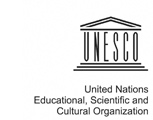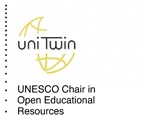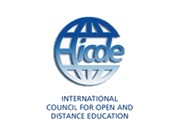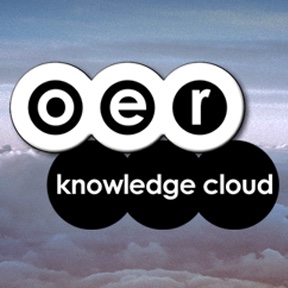Extending learning objects by means of social networking
Minguillon, Julia · Rodriguez, M Elena. · Conesa, Jordi · Luo, XF [secondary] · Spaniol, M. [secondary] · Wang, L. [secondary] · Li, Q. [secondary] · Nejdl, W. [secondary] · Zhang, W. [secondary]
| Published | 2010 |
| Type of work | Proceedings Paper |
| Conference | Advances in Web-based Learning-ICWL 2010 |
| Publisher | Hong Kong Web Soc; Shanghai Univ |
| Country | Germany, Europe |
ABSTRACT
Learning objects have been the promise of providing people with high quality learning resources. Initiatives such as MIT Open-CourseWare, MERLOT and others have shown the real possibilities of creating and sharing knowledge through Internet. Thousands of educational resources are available through learning object repositories. We indeed live in an age of content abundance, and content can be considered as infrastructure for building adaptive and personalized learning paths, promoting both formal and informal learning. Nevertheless, although most educational institutions are adopting a more open approach, publishing huge amounts of educational resources, the reality is that these resources are barely used in other educational contexts. This paradox can be partly explained by the difficulties in adapting such resources with respect to language, e-learning standards and specifications and, finally, granularity. Furthermore, if we want our learners to use and take advantage of learning object repositories, we need to provide them with additional services than just browsing and searching for resources. Social networks can be a first step towards creating an open social community of learning around a topic or a subject. In this paper we discuss and analyze the process of using a learning object repository and building a social network on the top of it, with respect to the information architecture needed to capture and store the interaction between learners and resources in form of learning object metadata.| Keywords | learning objects · metadata · repositories · social networks |
| Published at | Heidelberger Platz 3, D-14197 Berlin |
| Language | en |
| ISBN | 978-3-642-17406-3 |
| URL | http://www.springerlink.com/content/3h6200122851w666/ |
| Export options | BibTex · EndNote · Tagged XML · Google Scholar |
Viewed by 70 distinct readers
CLOUD COMMUNITY REVIEWS
The evaluations below represent the judgements of our readers and do not necessarily reflect the opinions of the Cloud editors.
Click a star to be the first to rate this document
▶ POST A COMMENT
SIMILAR RECORDS
Analyzing hidden semantics in social bookmarking of Open Educational Resources
Minguillon, Julia; SanchezAlonso, S.; Athanasiadis, I N.
Web 2.0 services such as social bookmarking allow users to manage and share the links they find interesting, adding their own tags for describing them. This is especially interesting in the field of open educational ...
Match: Minguillon, Julia; metadata; repositories; Germany; Europe
The use of Open Educational Resources in intra-organisational eLearning and continuing education
Andreatos, Antonios; Greener, S.; Rospigliosi, A}.
Sustained learning is a crucial factor of an organisation's ability to survive and effectively compete in the globalisation era worldwide. Continually shrinking half-life periods of knowledge and fast changing ...
Match: learning objects; metadata; Europe
Bootstrapping a culture of sharing to facilitate Open Educational Resources
Davis, Hugh C.; Carr, Leslie; Hey, Jessie M N.; Howard, Yvonne; et al.
It seems self evident that life for teachers would be simplified if there existed a large corpus of relevant resources that was available for them to re-use, and for inquisitive students to download. The learning object ...
Match: learning objects; repositories; Europe
A federated reference structure for open informational ecosystems
Heinen, Richard; Kerres, Michael; Scharnberg, Gianna; Blees, Ingo; Rittberger, Marc
The paper describes the concept of a federated ecosystem for Open Educational Resources (OER) in the German education system. Here, a variety of OER repositories (ROER) (Muuß-Merholz & Schaumburg, 2014) and reference ...
Match: repositories; Germany; Europe
Open Education: Auf dem Weg zu einer offenen Hochschulbildung
Deimann, Markus
»Open Education«, also das bildungspolitische Ziel, Bildung frei verfügbar zu machen, ist Gegenstand eines lebendigen Diskurses. Markus Deimann gibt einen systematischen Überblick zum Thema »Offene Bildung/Open ...
Match: Germany; Europe
Wikiwijs: Using OER as a driver for maturation
Schuwer, Robert; McGreal, Rory; Kinuthia, Wanjira; Marshall, Stewart
Match: metadata; Europe
Structuring OER using learning trajectories
Schuwer, Robert; de Vries, Fred
The Wikiwijs program in the Netherlands is experimenting in structuring a repository with digital learning materials by labelling these materials with the learning goals and subjects handled by it. This makes it ...
Match: learning objects; Europe
Diseño técnico – Pedagógico de objetos de aprendizaje adaptados a estilos de aprender
Ortuño, Rosalynn Argelia Campos; Morgado, Erla Mariela Morales; Serran, María José Hernández
Resumen
La influencia que ha tenido la irrupción de las Tecnologías de la Información y la Comunicación (TIC) en las instituciones educativas es notoria; sin embargo, es aún más importante reconocer cómo son y ...
Match: learning objects; Europe
OER re-use student survey (January 2011)
Stapleton, Steve; Horton, John; Beggan, Andy
This report presents supporting information for the case study gathered by the Open Nottingham team:
1. Information about the impressions of users regarding the quality of the document that was produced (Section ...
Match: learning objects; Europe
Learning objects lost in the network
Wojcik, Joanna; Rataj, Malgorzata
Most leading universities are using various elements of distance learning. Preparation of high-quality educational materials for the needs of studies, courses and training still consumes the majority of financial ...
Match: learning objects; Europe










